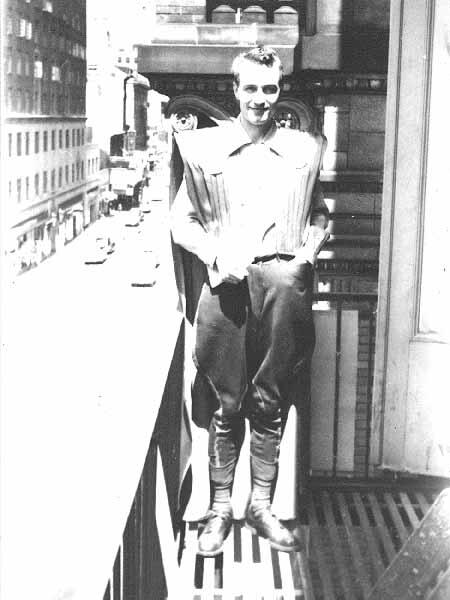 |
| Forrest J Ackerman attended the first Worlds in 1939 dressed in futuristic garb. Nice boots! |
The Calgary Comic and Entertainment Expo is quickly becoming one of the largest fan conventions in North America.In it's 9th year, the Expo has been able to secure huge named guests for 2014, from the cast of Aliens, to Matt Smith (Dr. Who) and Bruce Campbell (my personal fave!) But the expo like other fan conventions, owes its very existence to those small first cons.
Since the first convention over 70 years ago, fan conventions have grown into all facets of popular culture conventions becoming a world-wide event. Fan conventions (shortened often to just con) are usually informal, not professionally organized, gathering of fans of a set of genres and media arts. As well, most conventions have panels or workshops with experts and professionals in their fields, and provide fans with informal forums to discuss stories, ideas and approaches to speculative fiction, entertainment and media.
The first fan conventions were organized in the 1930s by fans and writers of Science Fiction, which was blossoming as a genre during the 1930s and 1940s, as part of the golden age of science fiction writing. Small events were organized by fans in North America and United Kingdom during this time. The first major con was the World Science Fiction Convention, Nycon I (which is now called WorldCon) in New York in 1939 in conjunction with the World's Fair. Such notable writers as L. Spague de Camp and Issac Asimov attended. Eastercon, the oldest and well-known science fiction convention in Europe, celebrated its 63rd birthday in 2012 with having George RR Martin, writer of the Games of Thrones, as its guest of honour.
| If your grandad liked killing off major characters, he'd be Mr. Martin. |
Specialization of cons increased over the next 50 years, as media such film and TV where science fiction and fantasy movies and programs. Due to the increase media growth, more people all over the world were being introduced to science fiction and fantasy stories, and wanted to join with other fans. One of the first media conventions was the comic and cartoon fan convention (manga and anime) was MEG-CON held in Japan in 1962. The first Star Trek convention was held in New York in 1972, where the TV show’s fans who combined their money, and rented a hotel ballroom to bring like-minded fans together.
While conventions are mainly attended by the fans, a strong element of professional attendance and award ceremonies has grown along with it. Since 1953, WorldCon has presented the Hugo Awards, celebrating the best in speculative fiction writing. It's named for Hugo Gernsback, inventor and founder of the first Sci-Fi magazine Amazing Stories. In Canada, the Aurora Awards are given out for in various fields such as speculative poetry and fiction, and is named after those pretty lights in our frozen sky. They have been given out for many years at conventions, with the Auroras this year being held at VCon 39.
 |
| Hugo Gernsback - so cool he also invented TV Glasses |
However, genre specific conventions are now becoming rare and more multi-genre events. Dragon-Con founded in Atlanta, Georgia in 1987, is one of the largest gaming and cross genre conventions in the world, and draws attendance of 46,000 people. Originally a gaming (role playing and board game) convention, programming for fans now includes science fiction, fantasy, comic books, and other elements of fan culture. This is why Expo in Calgary has been so successful as it appears to a large demographic of multi-media fan.
No comments:
Post a Comment